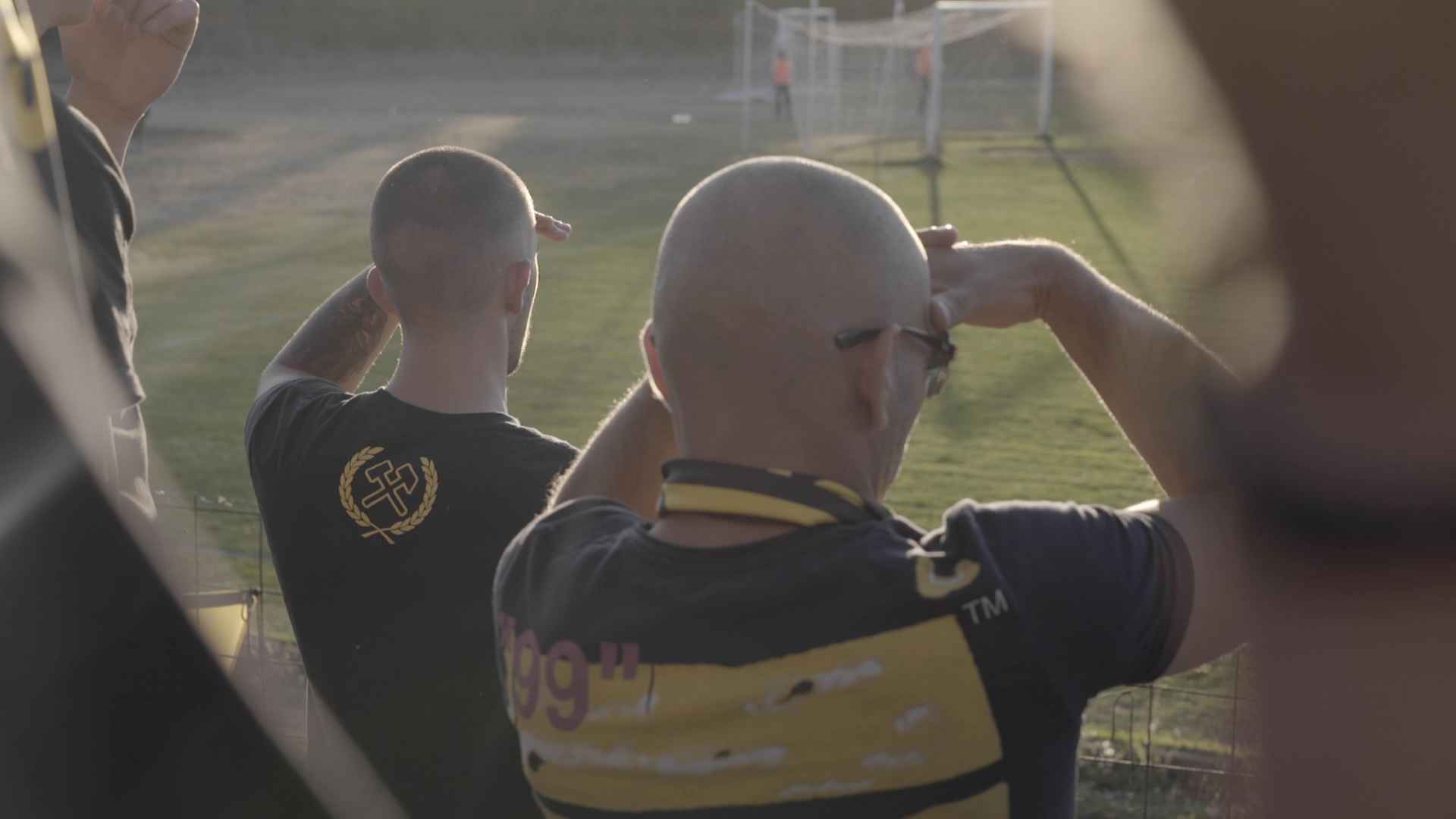No Place for You in Our Town
No Place for You in Our Town
VERDICT: This engrossed fly-on-the-wall style documentary follows a group of Bulgarian football hooligans, detailing their highs and lows in a changing world.
“Fuck tolerance,” says one of the subjects of Nikolay Stefanov’s new documentary No Place for You in Our Town, “I’m not tolerant, and I’m proud of it.” Thus, the stall is set out early on in this observational non-fiction portrait of the hardcore fans of FC Minyor Pernik, a team that competes in the second tier of Bulgarian football and is based in a city which the film’s press notes describe as ‘the most hostile city in Bulgaria.’ The film concentrates primarily on three fans – Tsetso, Dado, and Milena – with the former providing a central focal point and giving the piece its narrative shape. Having made its festival bow back at CPH: DOX earlier in the year, the film now screens in the documentary film competition at Sarajevo Film Festival.
A significant portion of the film’s runtime is taken up by footage of the fans together, drinking and singing – whether that is travelling to a match, in the stadium during a game, or amongst friends at a barbeque. It is fair to say that the atmosphere during all of these situations is relatively charged. At one point as a camping barbeque is being set up, a flag bearing an eagle in a style not unlike that adopted by the Nazis takes pride of place as a decoration and various men reveal questionable symbols tattooed on their bodies when they take their shirts off. When it comes to confrontations during football matches, things ramp up several more notches and Stefanov (who shot the film himself) bravely enters the cauldron to capture a real sense of the awe and thunder that comes as being part of the ‘yellow and blacks’ most vociferous supporters. The roar of the crowd is overwhelming and can erupt just as strongly as a result of the provocations of opposing fans as when ‘the Miners’ score. The camera also hovers behind supporters’ shoulders as it looks out onto the pitch, again giving a sense of inclusion within the throng.
Archival newsreels are intermittently injected into the otherwise observational milieu, and they provide a fascinating bit of cultural context for the region. The ground was broken on the Pernik mine in 1891 and some of the informational films characterise it as the financial foundation of the nation: “Here lies the black gold of Bulgaria,” says one report, “which builds up our economic might.” It is easy to understand, given its position as a prominent industrial hub, how resentment and disillusionment would set in when that commerce collapsed. In one instance, the film contrasts a grainy monochrome image of the mine as a pristine modern marvel with a sudden jump-cut to its current dishevelled state.
As far as the individuals go, Dado and Milena act as something approaching leaders of the fanbase – Dado is always willing to leap into a fight in defence of his football family, while Milena is the matriarch who, as the film progresses, attempts to keep them within the law so that they are actually able to go to matches and don’t fall foul of the police or the Covid regulations that gradually emerge. Tsetso is the closest thing to a protagonist and he, in particular, undergoes an unexpected transformation across the film’s runtime, inspired, to some extent by a bout of pneumonia that hospitalises him.
In the film’s opening scene, he strides down the street, inebriated and beer in hand, explaining that if anyone says anything against you or yours “you fight, you smash.” In another moment, he prowls the cage fence at the front of the football stand, seething with rage, spitting through the wire, and ready to hurl himself over. Later, however, he sits in his room sipping from a can of lager, giving a clear-eyed account not only of the childhood that led him towards violence and hooliganism but even of the appeal of skinheads and the camaraderie of the terrace. He is surprisingly articulate about the way that broader society isolates individuals and the ways in which that propagates the kind of movements he has become involved in. In an effort to make sure he doesn’t lose access to his son, he vows to steer him away from hatred and racism, though how much he is able to steer himself in the same direction is left unsaid.
In creating the sense of juxtaposition in Tsetso’s persona over the two halves of the film, one might think that No Place for You in Our Town offers a didactic opinion of these hard-line football fans, but Stefanov doesn’t give things so simplistic a treatment. He allows for moments in which the audience can appreciate the value of these close-knit communities – from a post-match litter pick to the sense of belonging that Tsetso describes. And while the violence and intolerance that can be seen and heard on the terraces are, rightly, depicted as terrifying and unacceptable, he is willing to give the group a chance to voice their own explanations: “the euphoria, getting the demons out… it was thrilling.”
Director, cinematography: Nikolay Stefanov
Screenplay: Mariana Sabeva, Nikolay Stefanov, Ralitsa Golemanova
Producer: Ralitsa Golemanova
Editor: Stoyan Velinov
Production companies: Smarty Pants Shooter (Bulgaria), HBO Max (US)
Venue: Sarajevo Film Festival (Competition – Documentary Film)
In Bulgarian
81 minutes


